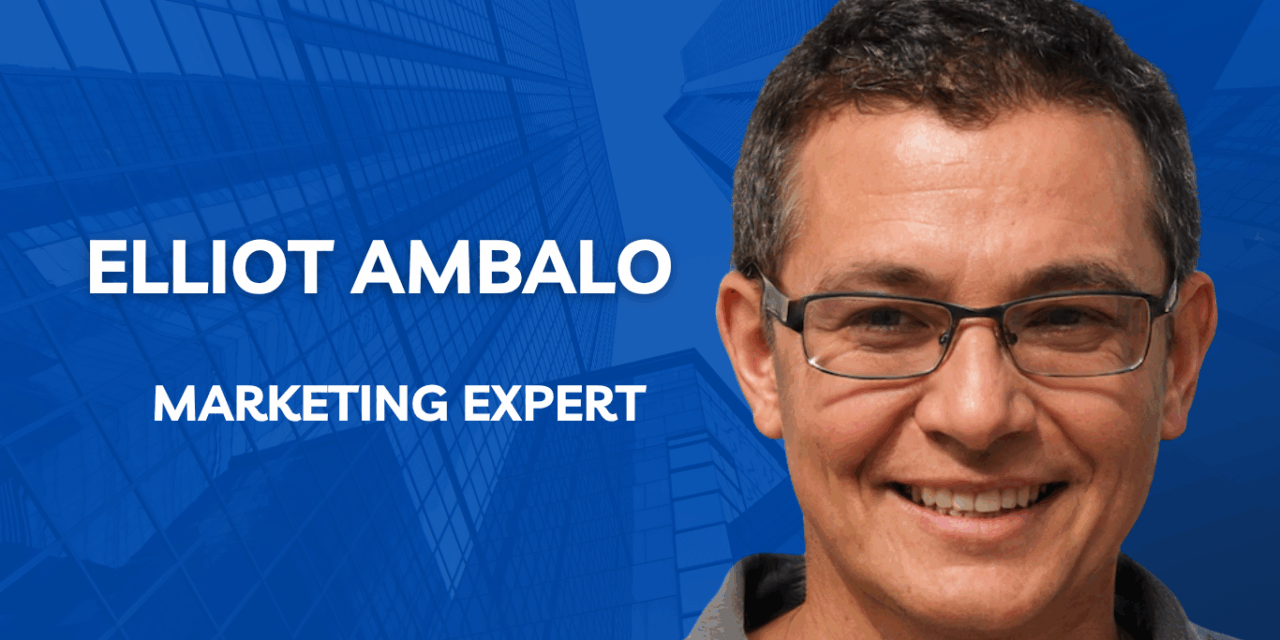Elliot Ambalo is a seasoned marketing expert based in New York with over a decade of experience helping businesses grow through strategic, data-driven marketing. Specializing in digital marketing, brand development, and customer acquisition, Elliot has worked with clients across a range of industries including technology, retail, and finance. His unique blend of creativity and analytics allows him to craft personalized campaigns that drive real results.
Elliot is especially skilled in SEO, content marketing, and social media strategy—tools he uses to increase brand visibility, engage audiences, and generate high-quality leads. A strong believer in measurable impact, he leverages marketing analytics to continually refine strategies and ensure strong ROI for every campaign. His hands-on, collaborative approach has made him a trusted advisor to both startups and established companies looking to expand their digital presence.
A lifelong learner, Elliot stays on the cutting edge of emerging marketing trends and technologies, allowing his clients to remain ahead of the curve. He is also an advocate for sustainable marketing practices, focusing on long-term growth rather than short-term gimmicks.
In addition to his marketing work, Elliot values building meaningful client relationships and is passionate about helping businesses succeed in increasingly competitive markets. Known for his strategic thinking, adaptability, and clear communication, Elliot Ambalo continues to be a leading voice in the marketing space—delivering innovative solutions that connect brands with their audiences and drive sustainable success.
Elliot, what initially drew you to the world of marketing?
I’ve always been fascinated by the intersection of psychology and business—understanding what drives people to take action and how brands communicate value. Early in my career, I realized marketing was the perfect space to blend creativity with data. I started out in digital strategy and quickly saw how impactful well-executed campaigns could be. The ability to shape narratives, connect with audiences, and drive tangible results excited me. Over time, I specialized in digital marketing because of its ever-evolving nature. It’s an industry where learning never stops, which keeps me constantly engaged and motivated.
What do you believe sets your marketing approach apart from others in the field?
What sets my approach apart is personalization and adaptability. I don’t believe in cookie-cutter campaigns. Every brand has its own story, challenges, and audience, and I take the time to understand all of that before designing a strategy. I’m also deeply data-driven—I rely on performance metrics to guide decisions, not guesswork. What worked yesterday might not work tomorrow, so I’m always refining based on results. My collaborative style ensures clients feel heard and involved, which builds trust and leads to better outcomes. I view every campaign as a long-term partnership, not a short-term transaction.
In your opinion, what’s the most underestimated marketing tool today?
Organic SEO is still one of the most underestimated tools in digital marketing. Many brands focus on paid ads for quick wins, which have their place, but long-term, SEO offers compounding value. A well-optimized website paired with a solid content strategy can drive consistent traffic and leads over time without the recurring cost. It’s not flashy, and it doesn’t provide instant results—but that’s why it’s often overlooked. I’ve seen businesses transform their online presence through smart SEO tactics, and it continues to be one of the most powerful, cost-effective strategies when executed correctly.
Can you walk us through your typical process when starting a new campaign?
Every campaign begins with deep discovery—understanding the client’s goals, audience, current positioning, and competitors. From there, I conduct a full audit of their digital presence and performance metrics. Once we identify gaps and opportunities, I build a tailored strategy that includes channel selection, messaging, and content planning. We then set clear KPIs and tracking systems to measure success. Execution is followed by frequent optimization based on analytics. I maintain open communication throughout, ensuring we stay aligned and responsive to real-time performance. That level of structure and collaboration is key to producing high-impact campaigns.
What’s one marketing trend you think businesses should pay closer attention to?
I think more businesses should embrace short-form video content—especially for platforms like TikTok, Instagram Reels, and YouTube Shorts. Consumer attention spans are shrinking, and this format allows brands to deliver value quickly and engage users where they already are. It’s not just for entertainment—it’s a powerful tool for education, product showcasing, and storytelling. I’ve seen massive reach and engagement from well-crafted short-form videos, even for traditionally “serious” industries like finance and tech. The key is authenticity and consistency. It’s not about going viral—it’s about being visible in a compelling, modern way.
What challenges do you often face with clients, and how do you overcome them?
One common challenge is aligning expectations—especially around timelines and results. Marketing isn’t magic, and even the best strategies take time to show ROI. I address this by setting clear benchmarks from the start and educating clients on what to expect at each stage. Another challenge is resistance to change. Digital marketing evolves rapidly, so I work to build trust and demonstrate why certain tactics or platforms are worth trying. Transparency, frequent reporting, and small wins early on help ease uncertainty and keep clients engaged in the process.
You advocate for sustainable marketing practices—can you explain what that means?
Sustainable marketing means building strategies that offer long-term value, not just short-term gains. It’s about developing authentic brand stories, prioritizing organic growth, and avoiding manipulative or spammy tactics. For me, this also includes considering the social and environmental impact of campaigns—being mindful of how we influence behavior. I encourage clients to invest in content and platforms that will serve them for years, not just chase trends. It’s a slower, more thoughtful approach, but it creates deeper connections with audiences and leads to more loyal, engaged customers over time.
What’s a project you’re especially proud of and why?
One project that stands out was working with a fintech startup that had great technology but struggled with visibility. We revamped their brand messaging, optimized their website for SEO, and launched a targeted content strategy. Within six months, organic traffic doubled, lead quality improved, and they secured a major partnership through inbound interest. What made it special wasn’t just the numbers—it was the transformation in how the company saw themselves and communicated their value. Helping them find their voice and connect with their audience made a lasting impact on their growth and confidence.
What’s one piece of advice you’d give to new marketers entering the field?
Focus on mastering the fundamentals before chasing every new trend. Digital marketing is a fast-moving space, but the core principles—understanding your audience, crafting clear messaging, and tracking performance—will never change. Learn how to write persuasively, interpret analytics, and test your assumptions. And never stop learning. Subscribe to industry newsletters, follow thought leaders, and stay curious. Most importantly, be adaptable. What works today may not work tomorrow, so develop the mindset of a problem-solver, not just a technician. The more value you provide, the more irreplaceable you become in this field.
Where do you see the future of marketing heading in the next 5 years?
I see marketing becoming increasingly personalized and AI-driven. With advances in machine learning, we’ll be able to tailor messaging and offers in real time based on user behavior. At the same time, consumers are getting smarter and more skeptical—so transparency, authenticity, and purpose will become even more important. Brands that use technology to enhance, not replace, human connection will thrive. I also believe the lines between content, commerce, and community will continue to blur. The future of marketing is about building trust and delivering value across every touchpoint, not just driving clicks.




